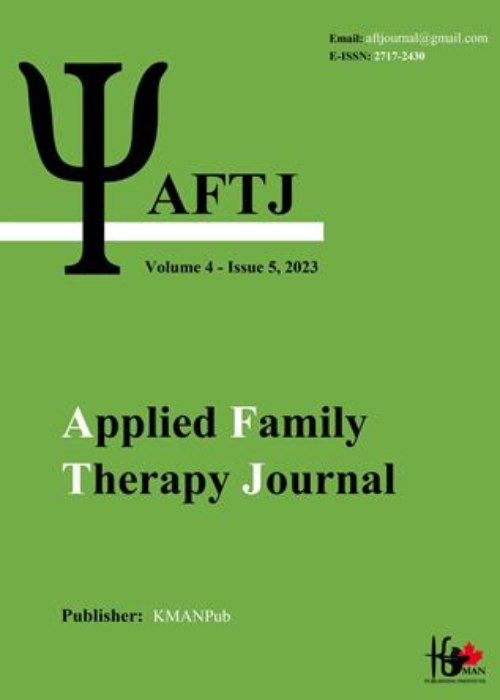A Comparison of the Effectiveness of Rational Emotive Behavior Therapy (REBT), and Acceptance and Commitment Therapy (ACT) in Improving Self-Care Behaviors (Nutritional Behaviors, Physical Activity, Blood Sugar Control, Foot Care, and Medication Adherence of Patients) in Women with Type 2 Diabetes
Author(s):
Article Type:
Research/Original Article (دارای رتبه معتبر)
Abstract:
Aim
The present study aimed to compare the effectiveness of rational emotive behavior therapy (REBT), and acceptance and commitment therapy (ACT) in improving self-care behaviors (nutritional behaviors, physical activity, blood sugar control, foot care, and medication adherence) in people with type 2 diabetes. Methods
The study was quasi-experimental with a pretest-posttest design, two experimental groups, a control group, and the follow-up stage. The statistical population consisted of all female patients with type 2 diabetes with a record in Parsian Clinic in Eslamshahr in 2019. Among them, 45 women were selected using the convenience sampling method and were randomly assigned to two experimental groups (15 per group), and a control group (n=15). The experimental group received acceptance and commitment therapy by Hayes et al. (2004), and the rational emotive behavior therapy (REBT) by Ellis (1999) in eight 60-minute sessions, and the control group was placed on a waiting list. The research tool included the diabetes self-care behavior questionnaire (Tubert and Glasgow, 1994) that was used at three stages, pre-test, post-test, and follow-up. Data were analyzed using repeated-measures analysis of variance. Results
Both interventions could significantly improve self-care behaviors (nutritional behaviors, physical activity, blood sugar control, foot care, and medication adherence) in patients with type 2 diabetes (P<0.05), but the acceptance and commitment therapy intervention had a greater effect on self-care behaviors in patients with type 2 diabetes. Furthermore, there was not any significant difference at the posttest follow-up stage (p<0.05), indicating the stability of intervention changes. Conclusion
Based on the results, acceptance and commitment therapy, and rational emotive behavior therapy (REBT) had effective interventions in increasing self-care behaviors in patients with diabetes.Keywords:
Language:
Persian
Published:
Journal of Applied Family Therapy, Volume:3 Issue: 1, 2022
Pages:
37 to 55
https://magiran.com/p2421673
دانلود و مطالعه متن این مقاله با یکی از روشهای زیر امکان پذیر است:
اشتراک شخصی
با عضویت و پرداخت آنلاین حق اشتراک یکساله به مبلغ 1,390,000ريال میتوانید 70 عنوان مطلب دانلود کنید!
اشتراک سازمانی
به کتابخانه دانشگاه یا محل کار خود پیشنهاد کنید تا اشتراک سازمانی این پایگاه را برای دسترسی نامحدود همه کاربران به متن مطالب تهیه نمایند!
توجه!
- حق عضویت دریافتی صرف حمایت از نشریات عضو و نگهداری، تکمیل و توسعه مگیران میشود.
- پرداخت حق اشتراک و دانلود مقالات اجازه بازنشر آن در سایر رسانههای چاپی و دیجیتال را به کاربر نمیدهد.
In order to view content subscription is required
Personal subscription
Subscribe magiran.com for 70 € euros via PayPal and download 70 articles during a year.
Organization subscription
Please contact us to subscribe your university or library for unlimited access!


